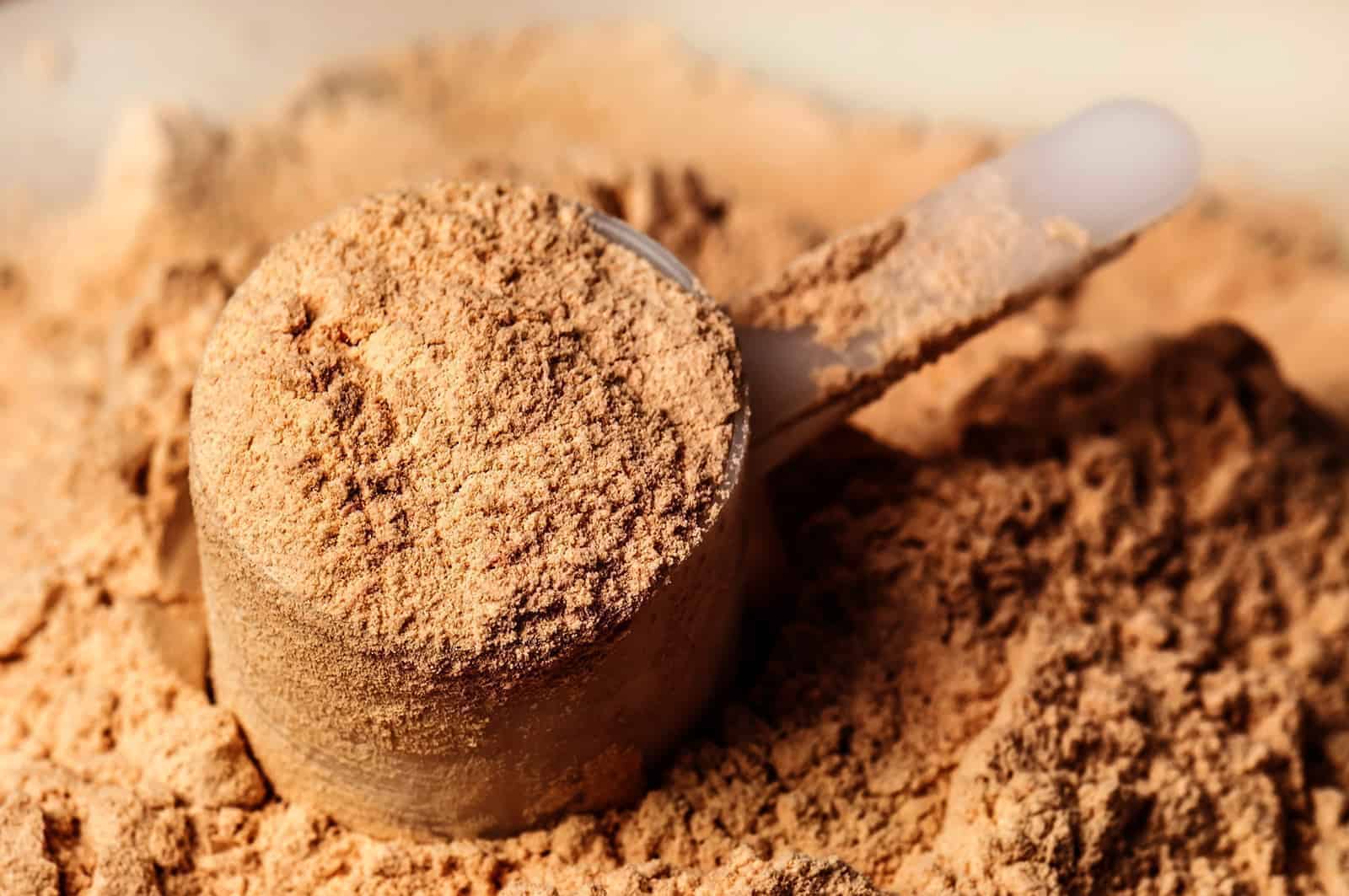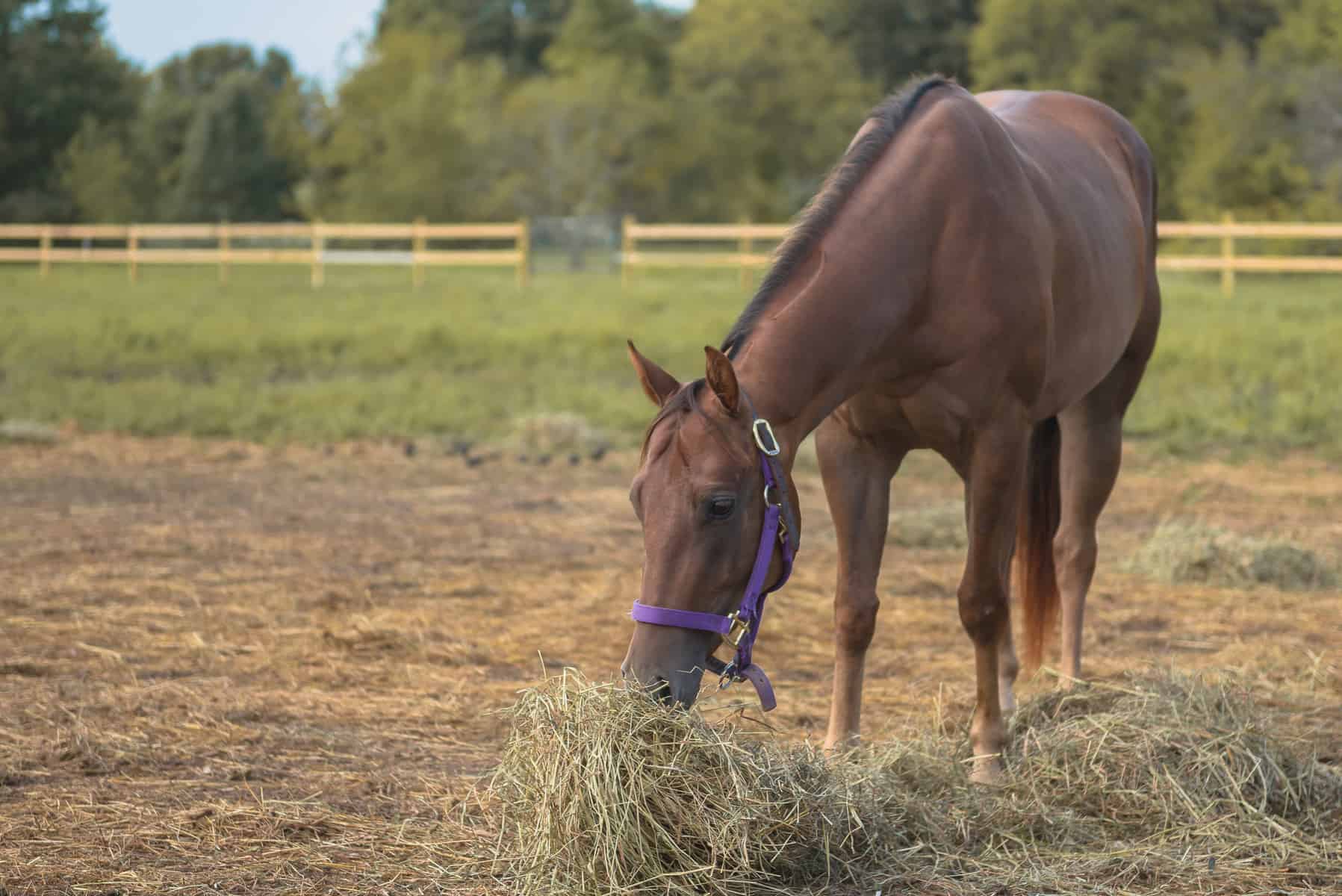Does Your Horse Need Probiotics?

If your horse’s gut microbiota is out of whack, microorganism-packed products might get him back on track
Inside the digestive system live millions of microscopic organisms that play vital roles in the horse’s digestive—and general—health. Many of these of bacteria, protozoa, archaea, and fungi help break down food and usher nutrients efficiently into the bloodstream. They play a role in metabolizing fiber, generating energy, and promoting proper intestinal transit.
While scientists still don’t know what makes up the ideal equine gut microbiota, they do know it’s a question of balance. “All these microorganisms live in a kind of symbiotic relationship when they’re in balance,” says Kathleen Crandell, PhD, a nutritionist with Kentucky Equine Research, in Versailles.
Without listing the thousands of species or labeling certain microbes as good or bad, let’s briefly say the “right” balance includes more Lachnospiraceae and Ruminococcaceae bacteria, which break down plant materials, and fewer Streptococcus and Lactobacillus bacteria, which produce lactic acid, Crandell says.
When that balance gets disrupted, so too does the symbiotic relationship, she explains. Horses might have intestinal discomfort, develop diarrhea, lose weight, experience energy loss and poor performance, seem generally unwell, and become more susceptible to illnesses.
To help shift that balance back in a direction that favors good health, scientists have isolated certain species of microorganisms from the microbiome and packaged them into oral powders, pastes, and liquids. These are probiotics.
You often see probiotics and prebiotics (fiber sources for the microbiota to break down, or “food” for the probiotics) packaged and supplemented together, but for the purpose of this article, we’ll focus on the former.
Assessing Safety and Efficacy
Study results show probiotics are safe for most horses, Crandell says. But while in theory they should work, little hard scientific evidence shows they are beneficial.
Most of the important digestive action in horses occurs in the cecum and colon—the hindgut—where fiber, in particular, the mainstay of equine nutrition, gets broken down, says Simon Daniels, PhD, senior lecturer of equine management and science at the U.K.’s Royal Agricultural University, in Cirencester. It’s here probiotics need to work their magic most, ideally reversing upsets in the favorable ratios between microorganism species.
The only way to get probiotics to the cecum, though, is orally—meaning the microorganisms must endure the acidity and digestive processes of the stomach and small intestine first. “We don’t really know how well they survive that journey, but we do know (these conditions) have an effect on it,” Daniels says.
Researchers also aren’t sure if the probiotics stay in the cecum or keep moving out the other end, but initial study results suggest they don’t stick around, says Crandell. “They don’t seem to colonize,” she says. “So the effect might only last as long as the probiotics are being given.”
While scientists haven’t confirmed probiotics’ effects in horses, they seem safe to try in most cases, she says. “For the moment, it’s really one of those things where it can’t hurt and might help.”
Top 5 Horses That Need Probiotics
It doesn’t matter whether your horse is an athlete, a broodmare, a senior, or a pasture pet, our sources say. What matters is if he falls into a category of likely having gastrointestinal (GI) microbiota imbalance. Here’s a list of the Top 5 types of horses that might make good candidates for probiotic therapy.
The horse with diarrhea
Defecation that’s too frequent and usually soft or even liquid is often a telltale sign of gut microbiota upset. “If there are problems in the microbiome, then the fecal consistency becomes soft,” says Daniels.
While it’s important to pinpoint the underlying condition to treat medically, owners can start probiotics to address digestive upset right away. “Using probiotics would be a way to try to stabilize that gut ecosystem in a horse with diarrhea or just loose droppings, even for unexplained reasons,” Daniels says.
Crandell agrees: “For an adult horse with diarrhea, probiotics would definitely be one of my go-tos.”
The “leaky gut” horse

Horses—like humans—can experience alterations in intestinal permeability that are commonly referred to as leaky gut. A layer of microbiota lining the inside walls of the digestive tract helps digest nutrients while also working as a barrier, keeping pathogens (disease-causing organisms) and large, undigested molecules from passing through the usually tight cellular junctions of the intestinal walls and slipping into the bloodstream, explains Crandell. “The gut really is leaking,” she says. The body’s response to circulating pathogens is inflammation, leading to generally compromised health. Horses with leaky gut can have diarrhea and show signs of intestinal discomfort such as mild colic.
“The idea is to give a probiotic that has the beneficial microorganisms necessary to reinforce the barrier and keep that gut from becoming leaky,” says Crandell.
In theory, she says, it should work— and studies in humans and rats using live yeast and Lactobacillus and Bifidobacterium bacteria suggest it might, she says.
The stressed horse
Probiotics can’t do anything about stress itself, but our sources say these products can help with its side effects.
Stressed horses release large amounts of cortisol—the “stress hormone”—into their bodies, usually altering gut motility (which is why stressed horses have more frequent, liquid feces). When stress is short-lived, the gut can usually restore order itself. But when stress is prolonged or intense, the horse might struggle to get the microbiota back in balance.
Daniels typically sees probiotics as more of a fix than a preventive approach, but there’s no harm in giving them to horses before stressful times. “If you have a particularly high-strung animal that’s going to be traveling, for example, you could give probiotics in advance,” he says. “Hopefully that will help stabilize any effects in the gut.”
Crandell recommends starting probiotics a week before a stressful event. But horses used to travel and other high-stress situations probably don’t need them. “If it’s a seasoned show horse going off to events like any other day in his life, that’s not the kind of horse that might benefit,” she says.
Dr. Simon Daniels
The horse with high energy needs
Sport horses, certain broodmares and older horses, and hard keepers have higher energy needs and usually require a special diet. Often that means providing high-starch concentrated feeds. Large quantities of starch, however, can make the digestive tract more acidic, says Crandell. Worse, any starch that doesn’t get digested in the small intestine can make it back to the cecum.
“It starts to get broken down by starchloving bacteria there, and they produce lactic acid, which causes the pH to drop,” she says. In this acidic environment, the balance shifts, and the wrong microbes become dominant. “So what you’re doing by feeding a probiotic is trying to stabilize that pH in the hindgut.”
Meanwhile, probiotics could also help the GI tract extract energy from fiber more efficiently, says Daniels. “Researchers in animal nutrition and gut health have been working for a long time to try to improve the use of fiber,” he says. Haylage, for example, has higher energy content than hay and could replace some or all of a horse’s starchy feed ration. But for horses to benefit from the energy in haylage, their bodies must be able to extract it out of the fiber. Also, “obviously, when there’s high fiber in the diet, it’s got to be highly digestible,” he says.
Probiotics can provide the microbes necessary for breaking down fiber, Daniels says. “Especially for sport horses, you really want to make sure you’re getting the maximum amount of what you put in.”
Because of these potential benefits, manufacturers often add probiotics right into packaged feed, he says. “If you can potentially improve fiber degradability or reduce the harmful effects of starch, then that’s not a bad thing.”
The medicated horse
Despite their good, drugs can come at a price. Antibiotics, in particular, but also steroids and non-steroidal anti-inflammatories, can upset the gut microbiota balance as the drugs incidentally attack favorable bacteria or change the acidity of the environment. Even dewormers can change microbiota, and not all horses can get the balance back on their own, says Daniels.
Horse owners don’t necessarily need to give probiotics before or with the drug, he says—or at all. But they can monitor medicated horses for signs of gut trouble, which usually shows up as diarrhea.
“The classic example would be the horse that gets an injury and gets antibiotics, and now the droppings are loose,” Daniels says. “So then you want to restabilize things and get them kick-started again, so you add some probiotics.”
Special Concern: Young Foals
A new foal develops his unique gut microbiota rapidly, picking up microbes from the dam’s teats and skin, her droppings, and surrounding surfaces. So early life might be the wrong period for supplementing, says Crandell.
Daniels agrees: “From the studies that have been undertaken, it appears there is limited benefit in very young foals that are developing their own microbiome, which is initially heavily influenced by their dam and the milk diet.”
Research findings hint at a vulnerable period between 7 and 28 days of age when caretakers might want to avoid giving probiotics, Crandell says.
Existing Probiotics Research
Whereas probiotic research in humans is vast, very little research has shown the effect of probiotics in living horses.
A few teams around the world are trying to fill that gap. At Colorado State University, researchers have looked at how probiotics might help horses clear sand from their intestines (although the results weren’t very optimistic). Meanwhile, a U.K. group has studied the effects of yeast supplementation on ponies’ fecal microbiomes, with more positive results. Slovakian scientists have isolated bacterial strains from horse feces to test their effect as an equine probiotic. Lithuanian researchers are assessing the effects of newly isolated Lactobacillus species on endurance horses. And Dutch researchers are investigating how topical probiotics might help limb wounds heal.
On the other hand, scientists (Berreta et al., 2020) found inconsistencies between product labels and ingredients as well as the presence of antimicrobial-resistant genes in the bacteria of some commercial veterinary probiotics.
Daniels says he’s hopeful that scientists will investigate the link between the microbiota and horse behavior and how probiotics might influence it. “I think we are all realizing that we are what we eat and that diet has a strong influence on not just our gut health but our overall health, moods, and behavior,” he says. “I think it’s extremely likely that the same happens with the horse.”
Take-Home Message
By supplementing horses with the same kind of beneficial microorganisms that colonize their guts, probiotics might help reestablish healthy balances in the gut microbiome without causing harm. While research is still inconclusive about their efficacy, our sources believe these products might be worth trying when horses show signs of intestinal upset caused by illness, medications, stress, or feed or to get the most out of fiber’s energy supply.

Written by:
Christa Lesté-Lasserre, MA
Related Articles
Stay on top of the most recent Horse Health news with











